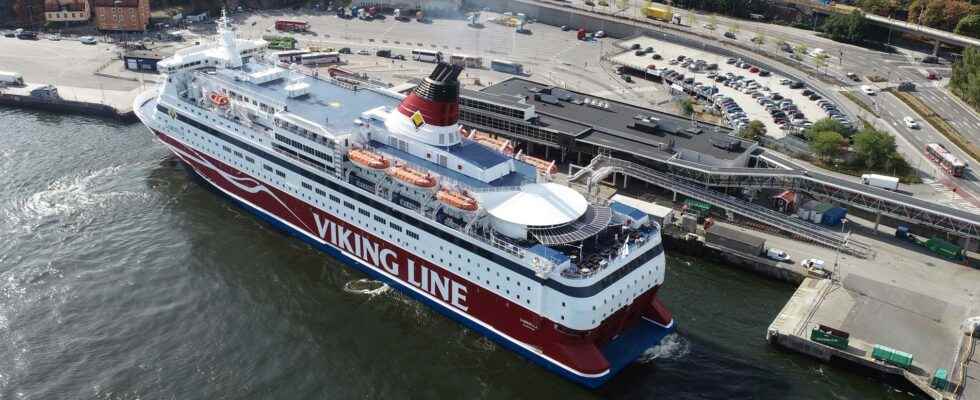Published: Less than 10 min ago
During the wave of refugees last spring, the government introduced mandatory requirements for ID checks on ships. There is a plan to extend the controls – but the shipping industry is critical.
– We find it difficult to see that there is a need for this regulation from a maritime safety perspective, says Anders Hermansson, CEO of Swedish Shipping.
On March 28 – just over a month after Russia invaded Ukraine – the new regulation went into effect making it mandatory for shipping companies to check ID documents on all passengers.
The background was the extensive refugee flow of Ukrainians who came mainly by boats to ports in Stockholm and southern Sweden.
– When the law came into force, it was at a stage when it was feared that there would be a great many refugees from the war in Ukraine. It was important just for identity reasons to ensure who was on board the boat, says infrastructure minister Tomas Eneroth (S).
Reduced significantly
Since then, the number of refugees coming to Sweden has turned out to be significantly fewer than the authorities thought. During the month of March, over 27,000 Ukrainian citizens applied for asylum in Sweden in accordance with the EU’s mass refugee directive. So far during the month of July, the number is 1,575.
The requirement for ID checks expires on September 1, but the government is now preparing to extend the regulation until the turn of the year. It is met with strong criticism from the shipping industry, which believes that they have good control over who travels by ship to and from Sweden based on the passenger lists that must be drawn up. Since 1998, there has been a registration requirement for those traveling on board passenger ships departing or arriving from ports within the EU.
– We find it difficult to see that there is a need for this regulation from a maritime safety perspective. The basis that existed before, where you collect name, age, gender, nationality, it has worked very well ever since the 1990s when this requirement was introduced within the EU, says Anders Hermansson, CEO of the industry organization Swedish Shipping.
The purpose of taking in this information is to know how many and who need to be rescued in the event of an accident.
“Will listen in”
When the government is now preparing an extension of the ID checks, it is being done with reference to maritime safety, which Anders Hermansson thinks is completely wrong. At the same time, before the holidays, “a few people” traveled from Ukraine.
– We find it difficult to see that there is such a need for maritime safety reasons. If the government sees other needs to do so, other legislation should be used, says Hermansson.
Tomas Eneroth believes that shipping companies, just like aviation, need to have control over who travels with them. Most companies have taken care of this, but some have not lived up to the new requirement, he claims. He also claims that the ID regulation has likely prevented trafficking, even though the shipping companies already today, according to the minister, are doing a good job of countering human trafficking.
– I will especially listen to the referral’s views now and report back shortly. At the same time, it has been important for us, not least for maritime safety reasons, to guard the basic principle: we must know who is on board, says Eneroth.
– But we conduct a dialogue and see if there is any simplification or relief we can do.
